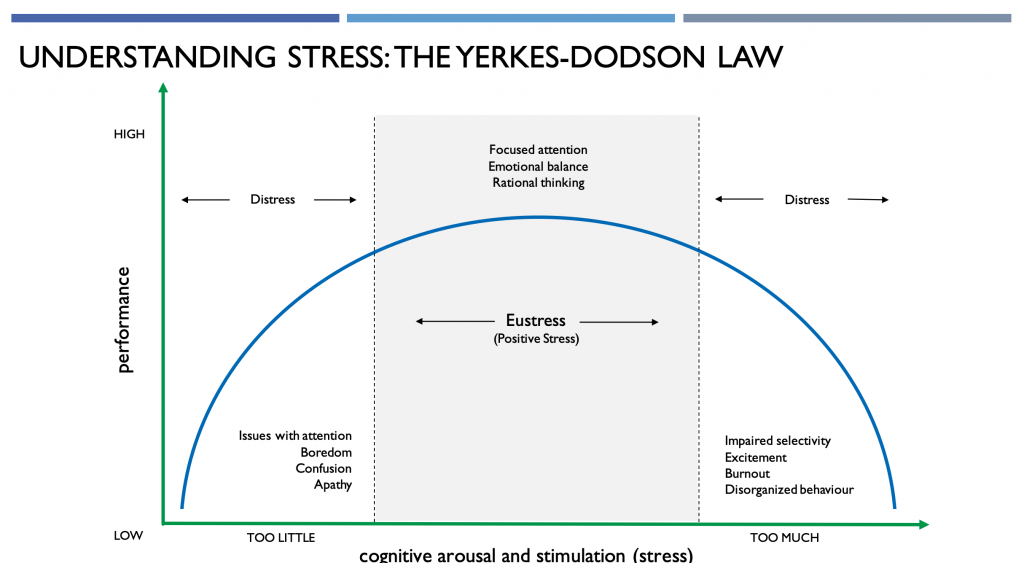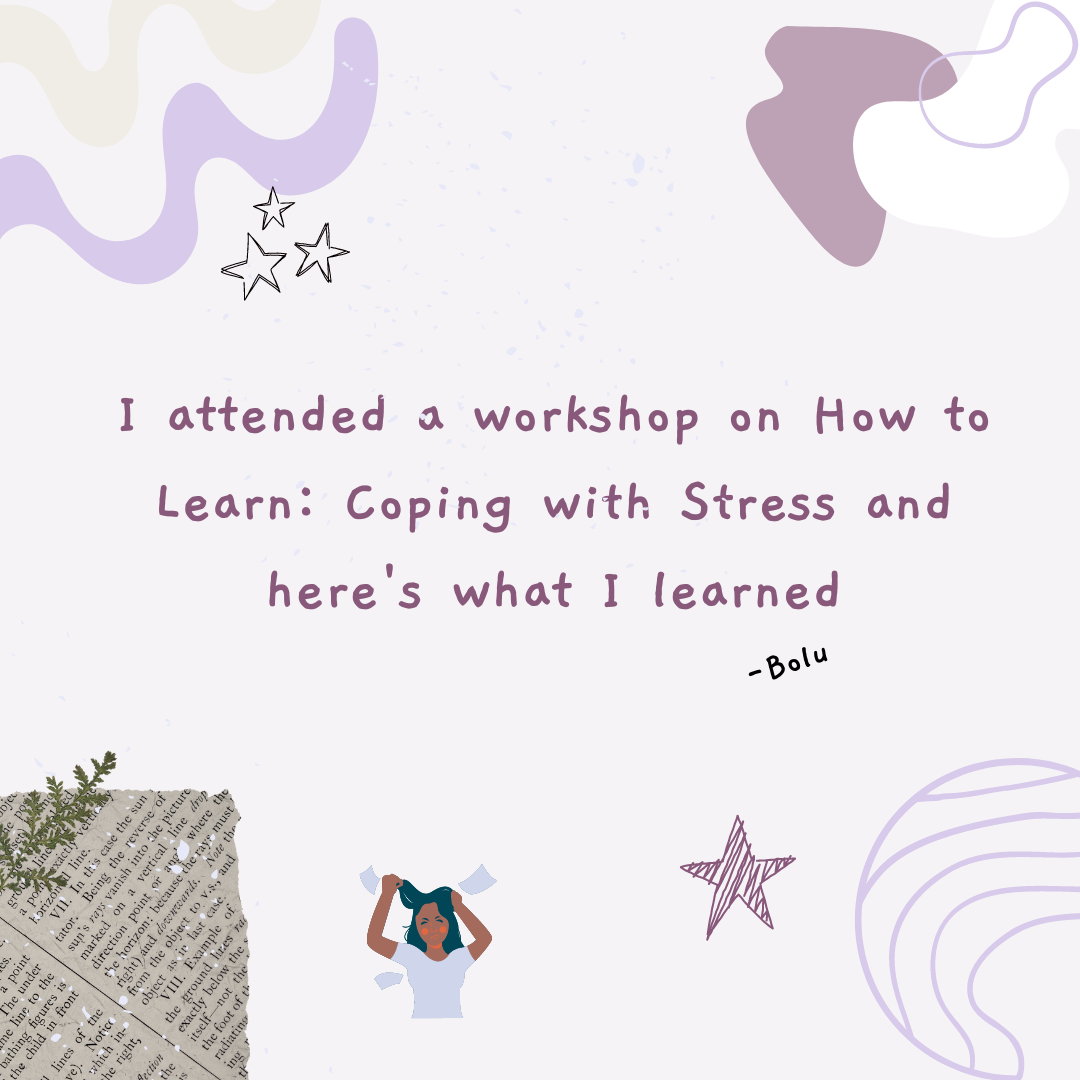As a student, one of the biggest things I’ve always struggled with was how to manage stress. From trying to manage extra curriculars, academics, family obligations and so on, most of the time it truly feels like an ever ending struggle. So when I found out the the Learning Strategist Team was hosting a workshop on coping with stress, I thought check it out. I had attended a couple workshops in the past and sometimes found them to not be as informative as I’d hoped. To be honest, going into it I wasn’t too sure what to expect but I’m definitely SO glad I attended. Without further ado, here are some of the keys things I learned!
Stress is not always bad!

While stress can be an indicator of something bad, this isn’t always the case. Stress can be seen as something that we need to motivate ourselves in order to reach a goal. Problems usually arise when we have a great amount of stress for a prolonged amount of time.
Rest does not always = sleeping
I am definitely guilty of always equating sleeping with rest. There have been many moments where I would literally sleep for hours and still feel tired! Instead of thinking of rest as the act of not doing something, it’s better to think of it as doing something that allows you a moment to recharge and restore your energy.
Shallow vs Deep Work
I know that I can’t be the only one that gravitates towards multitasking. At times, I find myself trying to get multiple things does at the same time while having music on the background and watching and rewatching an episode of How I Met Your Mother. I know for a lot of us, it’s so easy to feel like we have to multitask and be productive 24/7 but this simply isn’t realistic! Knowing how much time a task is really gonna take is vital in order to be able to use your time efficiently. An even better method that I learned during the workshop is the importance of recognizing which tasks require a lot of focus and which don't. This will allow you to be able to able to budget your time properly. One thing I've always struggled with is underestimating how long a task is going to actually take. This usually gets followed by a sense of disappointment and failure when when I fail to reach the ridiculous goals I’ve set for myself. Instead, it’s better to categorize tasks depending on how much time (realistically) is needed for them.
Final thoughts
Although these are some of the tips that I’ve learned, there’s so much more to rest as a key component of learning. One thing that I think is also vital is taking the time to learn what methods work for you! For example when it comes to wellness, a lot of people recommend yoga but I personally find it boring and it simply doesn’t work for me. The silver lining, there are so many methods and approaches to finding ways to recharge that I’m sure you’ll find the ones that work for you!
xx,
Boluwatife


0 comments on “I attended a learning How to Learn workshop on stress and here’s what I learned”